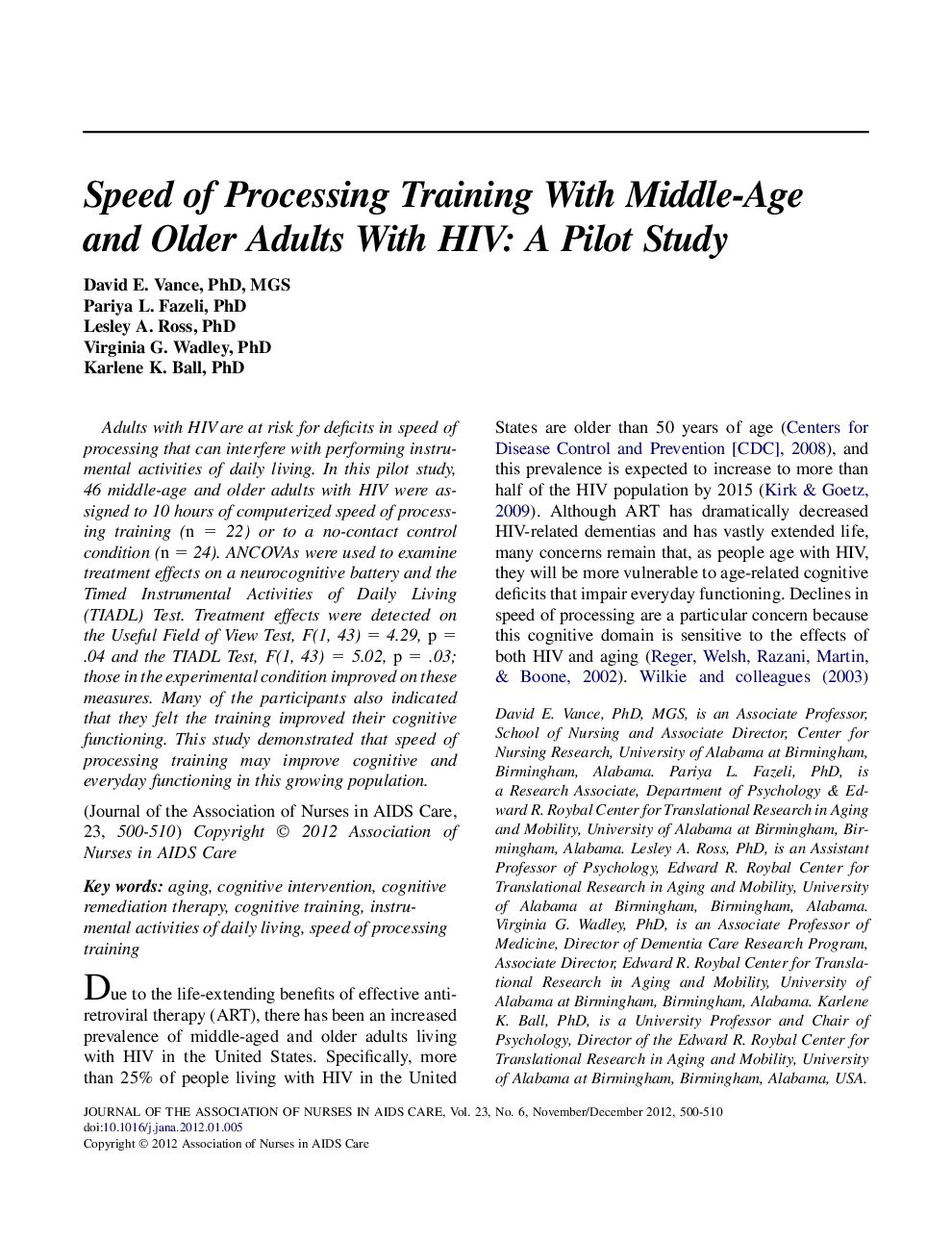| Article ID | Journal | Published Year | Pages | File Type |
|---|---|---|---|---|
| 2658811 | Journal of the Association of Nurses in AIDS Care | 2012 | 11 Pages |
Adults with HIV are at risk for deficits in speed of processing that can interfere with performing instrumental activities of daily living. In this pilot study, 46 middle-age and older adults with HIV were assigned to 10 hours of computerized speed of processing training (n = 22) or to a no-contact control condition (n = 24). ANCOVAs were used to examine treatment effects on a neurocognitive battery and the Timed Instrumental Activities of Daily Living (TIADL) Test. Treatment effects were detected on the Useful Field of View Test, F(1, 43) = 4.29, p = .04 and the TIADL Test, F(1, 43) = 5.02, p = .03; those in the experimental condition improved on these measures. Many of the participants also indicated that they felt the training improved their cognitive functioning. This study demonstrated that speed of processing training may improve cognitive and everyday functioning in this growing population.
